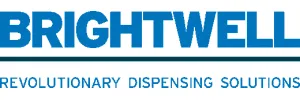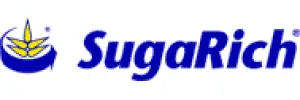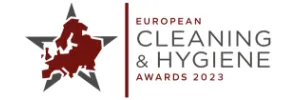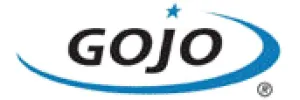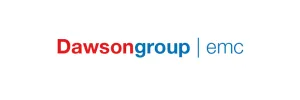Our Blog
Our treasure trove of resources, tips and tricks

Posted on 7 June 2013 by Ceris Burns
The convergence of cleaning and waste management
The Waste Framework Directive (Directive 2008/98/EC) provides the overarching legislative framework for European Union waste policy. The long-term goal is for the EU to become a society that avoids waste in the first place and, where it does arise, to use this waste as a resource.
This marked a decisive shift from a dependency upon landfill towards the EU’s waste hierarchy, with the highest priority given to waste prevention, followed by re use, recycling and recovery. Disposal of waste through landfill should be avoided wherever possible.
Integrated, modern professions
As the industry becomes less about landfill and recycling and more about turning waste into resources, it is increasingly becoming closer to the cleaning and facilities management sectors. Until relatively recently, they’ve both been pretty much separate entities, but they are now starting to converge in terms of clientele, services and direction. This is thanks to the relevance of each industry’s particular skills and the mutual benefits each partner can bring to the mix. As the drive for cost efficiencies strengthens across all sectors, these industries are increasingly partnering to deliver integrated services.
The recycling and waste management industry has made significant progress as it brings in newer and better technologies to enable even more materials to be sorted and recycled – from paper and plastics, to hazardous waste, textiles, electronic/electrical items and food. Its pioneering ways are helping companies to minimise the impact their actions have on the environment, something that all businesses are keen to do in our ‘greener’ 21st century. In parallel, the cleaning industry is also seeking more environmentally friendly ways of keeping premises hygienically clean, with research and development time being given to creating new ways of cleaning using less chemicals, water or energy.
Restore rather than replace
Keeping premises clean will help reduce waste, avoid pest infestations, and provide a safe and pleasant working environment.
Alan Lewin, Business Development Manager for ServiceMaster Clean, says: “Regular maintenance is a lot less costly than replacing floor coverings and upholstered items frequently. The technology for protecting, sustaining and restoring the appearance of floor coverings that were previously considered beyond repair, has improved dramatically. Instead of tearing up damaged floor coverings, and throwing upholstery out, thereby consuming new materials, at ServiceMaster Clean we work with organisations to carry out full restoration, saving materials from our landfills that could take hundreds of years to break down.”
Sharing best practice
With these clear synergies, the sectors can help each other in areas such as training and specialist knowledge, which is already being recognised by industry bodies, including the British Institute of Cleaning Science.
Chris James, CEO of the Waste Management Industry Training and Advisory Board (WAMITAB), says: “The waste management industry has evolved considerably in recent years and continues to develop to meet technological, environmental and legislative challenges. Skills and knowledge development must keep pace to ensure that employers are delivering efficient and effective services that will also support our partners in the cleaning and FM sectors.”
Turning waste into resource
A third of the world’s food is wasted and we all have a part to play in solving this problem.
SugaRich is one company that has recognised this, offering services to bridge the gap between food manufacturers and retailers wanting to put waste food to good use. When food is manufactured, there are inevitable by-products and a proportion of the finished product can’t be placed on the market for human consumption. This may be for a variety of reasons, such as packaging defects or wrong size/weight biscuits, trial runs or over ordering and out of date stock.
A busy food production site or supermarket chain has more than enough issues to manage, so disposing of surplus food as waste may seem like the simplest choice. Even so, this results in a cost being levied to the business and the waste potentially ending up in landfill.
Many of these former foodstuffs, including bread, biscuits, breakfast cereals, crisps and confectionery have a very high nutritional value – being a source of high quality fats, sugar and carbohydrates. After checking their safety and traceability and therefore suitability, SugaRich converts surplus food into high quality ingredients for use in animal feed, avoiding waste from food that is unfit for human consumption.
Waste targets
Amongst increasing EU targets for reducing wastage of all types of materials, new targets will require member states to collect 85% of electronic waste generated from 2019 onwards.
Trudi Osborne, Marketing Communications Manager of Airdri says: “Investment in effective, long-lasting energy efficient washroom equipment can help organisations avoid unnecessary waste. Reduced consumption of energy and materials are two of the areas where the greatest savings can be made in facilities management services, according to research from the Waste & Resources Action Programme.”
As the cross overs become more apparent – in terms of clients and industry needs – more joint working and sharing of best practice will undoubtedly follow. Both sectors can help the other in areas such as training and specialist knowledge – which could bring benefits in terms of better profits for them, and even better services for customers.
Categories
- Branding
- Crisis Management
- Digital PR
- Environmental PR
- General News
- Guest Blogs
- International Insight
- Our Blog
- SEO Updates
- Social Media
- Uncategorised
Experts in Public Relations Services & Communications Management
Our ServicesGenuine industry specialists in cleaning and hygiene, environmental and recycling, and facilities management
Our Sectors
